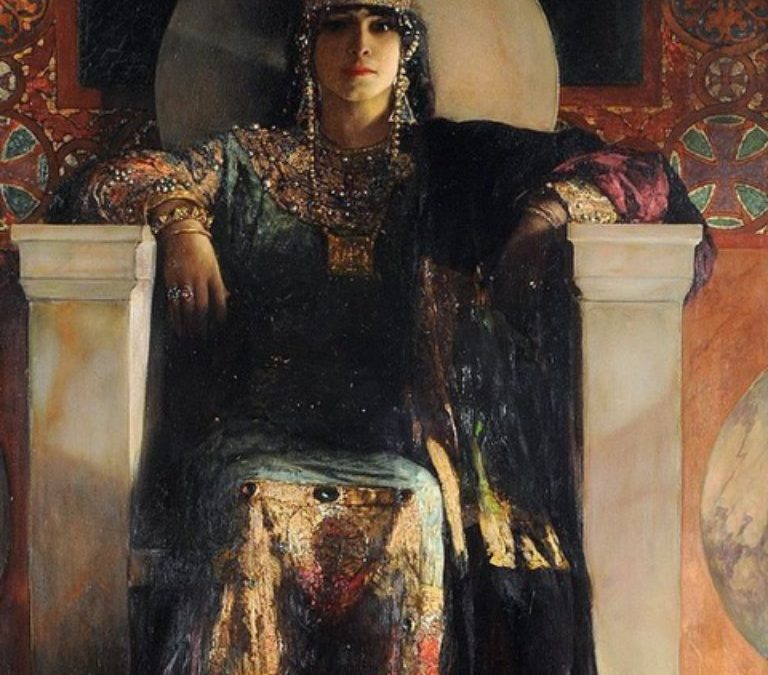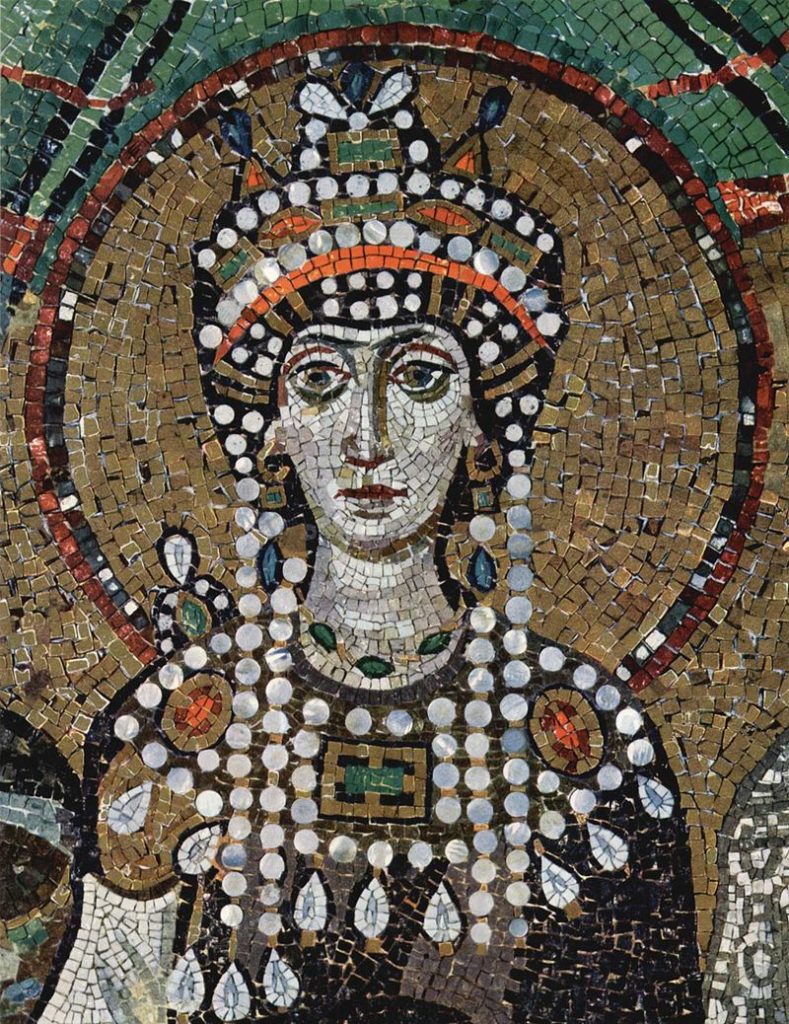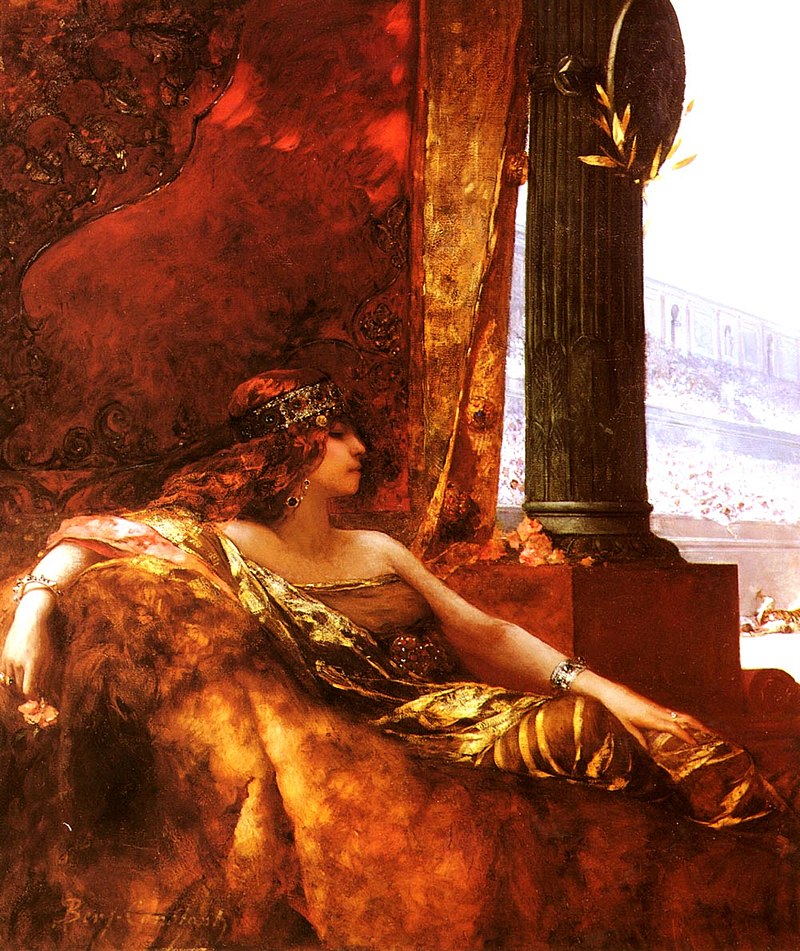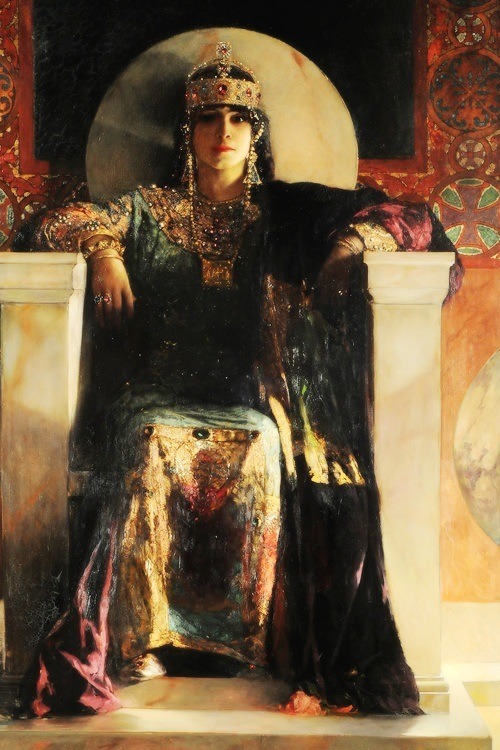
Empress Theodora: Origins of Women’s Rights
There are many currents that flow into our modern understanding of women’s rights. Many cultures have recognized for various levels of egalitarian or matriarchal traditions and we have countless examples of great women in power—from the pharaoh Hatshepsut to Queen Victoria to Eleanor Roosevelt. But one woman—Empress Theodora— achieved such a decisive victory for women in her time that her relative obscurity is breathtaking. Her legacy lives on today, though you may not know it.
More than fifteen hundred years ago, Theodora helped influence massive legal reforms aimed at improving the plight of women. During her reign, she influenced parts of a legal codex known as the Corpus Juris Civilis, which included a wave of specific rights for women. Historians credit this body of Byzantine law as central source material to the legal tradition of Western civilization. Whoa. That means Empress Theodora made direct contributions that survive today in the legal systems of the American Constitution, English common law, and even international public law. It’s rare to see such advanced legalism in the early Medieval era, but rarer still to know the individual woman behind the endeavor.
But just who is Empress Theodora? What laws did Empress Theodora change? And why don’t more people know about her?

Portrait mosaic in the Basilica of San Vitale, Ravenna
“That means Theodora made direct contributions that survive today in the legal systems of the American Constitution, English common law, and even international public law.”
Abandoned by most Western thinkers throughout the centuries, Empress Theodora came off as a salacious novelty, a Medieval prostitute-stripper who made it to the top through a lucky marriage. The scandalous gossip[i] of her past, which is handed down to us by a single male source, Procopius of Caesarea, no doubt stirred the imaginations of Western historians through the centuries. The general consensus throughout history is that prostitutes have little historical value and make poor role models. But missing from this harsh judgment is the fact that as a prostitute, Theodora was part of an institutional system that marginalized women to an extreme. Her perspective was necessary for addressing women’s rights because she had firsthand knowledge and experience about the reality for women. She dared to articulate the specific problems women faced at a time when no one cared or listened. Even so, Theodora insisted on designing real-world solutions, defined in legal terms, to fix the problems she knew existed.
Theodora’s personal ideas and solutions became law[ii]. And she didn’t eff around about it.
Under Empress Theodora, rape was made punishable by death. This law extended to anyone present during the rape, regardless of position or rank, and the rapist’s property was even transferred to the rape victim[iii].

Painting by Jean-Joseph Benjamin-Constant
Theodora also saw to it that women could own and inherit property[i], which is quite a breakthrough because it gave daughters and wives real social power. A family’s wealth could now continue through a daughter, and should a woman’s husband die, the wife could claim the property and fortune. This greater legal right alone gave women throughout the empire real power in real terms.
Unlike today, professional outlets for women were severely restrictive. Besides the socially acceptable “work-from-home-and-raise-a-family” jobs, such as weaving, innkeeping, or baking, the very concept of ‘professional women’ as a large and recognizable class did not exist with one exception. A large number of women worked in theaters and brothels. So, although this professional class of women carried a huge social stigma, their industry was one of the few places where women worked publicly outside the traditional family structure and earned real income.
Therefore, laws that addressed legal matters for this lowly and socially powerless group is bold and unashamedly supportive of women in general. Theodora meant to treat the professional women of her society, sex workers though they may be, as professionals. She understood that these prostitutes, actresses, mimes, and singers earned money and could technically sustain themselves independently. But brothel keepers had legal authority over these women. So, Theodora shifted that legal authority back to women.
“These reforms should be regarded as revolutionary since they shattered the most powerful class barriers.”
Under the new laws, no woman could be forced into prostitution[i]. If a woman willingly chose prostitution, but later wished to leave the profession, Theodora’s laws made it illegal for a brothel-keeper to stop her. And Theodora followed up relentlessly to ensure enforcement of the laws. When Theodora discovered that brothel keepers undermined the new regulations by making girls swear oaths never to leave the brothels, she responded by rendering such oaths illegal[ii]. She mandated that the provincial governor and the head bishop had the responsibility to enforce this law, giving her direct oversight over a manageable number of men in high positions. She chose two men to enforce, because if the governor, himself, blocked a woman’s departure from a brothel, then the bishop could override the governor. You see, Theodora had once been a concubine in the service of one of these provincial governors. She knew only too well the kind of power these men had over women. She curbed that power at the highest levels.
And Theodora didn’t stop there. She helped to overhaul the marriage laws of her time. These reforms should be regarded as revolutionary since they shattered the most powerful class barriers.
For centuries, there was a ban on intermarriage between the upper and lower classes[iii]. By law, a prostitute could never marry a nobleman. Such a rigid class system was characteristic of a Roman world view that regarded high title and rank as self-evident. Secondly, even under the new Christian perspective, prostitution was regarded as immoral and sinful. Therefore, when Theodora helped to facilitate the removal of the marriage ban, she did so without the support of either the secular or religious tradition. Her personal world view alone guided the legal reform. By removing the marriage ban[iv], prostitutes could now marry into noble houses and gain legal status. Like it or not, this represents unparalleled social mobility for women at the time. It gave women access to power.
By having the marriage ban removed, Theodora saw to it that her sister, her daughter, and numerous other theater friends all married into noble houses. Just like that, several women crossed an impossible barrier and gained incredible social power, and they achieved this change in fortune seemingly overnight.
“Therefore, when Theodora helped to facilitate the removal of the marriage ban, she did so without the support of either the secular or religious tradition.”
Once, Theodora arranged a marriage between one of her theater friends (an ex-prostitute) and a nobleman named Saturnitus[i]. When Theodora heard that this Saturnitus complained that his prospective bride wasn’t a virgin, she had the nobleman rolled in a blanket and flogged with a cane. She asked Saturnitus just one question: why could he frequent the brothels with impunity and dare demand virginity in his wife? Theodora didn’t believe in double standards.
Other laws, too, applied to all women regarding marriage. In Byzantium, there was a law of ‘mutual consent’ in divorce cases. A divorce was granted only if both the husband and the wife agreed to void the marriage. By the way, this legal concept is still practiced in some countries today. If the wife seeks a divorce, but not the husband, she stays married against her will. You might point out that this law works in both directions. However, if a man was forced to stay in a marriage because his wife vetoed the divorce, especially back then, he could easily visit a brothel, hippodrome, amphitheater, or tavern and enjoy a full life outside the home. Wives did not have this luxury. (They weren’t even allowed on the street without a male escort[ii]). So, the law of mutual consent worked disproportionately against women.
So, Theodora had the law of mutual consent struck down.
Secondly, women of the time were expected to offer a dowry to their grooms. By Theodora’s time, the custom had expanded to make it fashionable for men to offer something minor in return. This minor offering was called an “antenupital.’ Under the new laws, the antenupital had to be equal to the bride’s dowry. Equal to the bride. Theodora’s message is consistent and clear.
She also knew that prospective brides could sometimes be pressured into a marriage. A woman might give consent initially when put on the spot, but as the marriage date grew near, she might think differently. Therefore, a new law came out that required the prospective bride to give her consent twice—once at the original proposal, and then again before the marriage took place. This allowed women to change their minds before entering into a lifelong commitment[iii].
Painting by Jean-Joseph Benjamin-Constant
Finally, in what I regard as a remarkable example of Theodora’s scope, sympathies, and real-world knowledge, she even dared to protect criminal women. In the Sixth Century, protection for male criminals wasn’t even a concern. That’s why I regard Theodora’s intervention on behalf of criminal women to be truly groundbreaking. If a woman required prison time, the new laws forbade her imprisonment in common jails where she had no protection from male guards who could abuse these women without recourse. She saw to it that criminal women were removed from common prisons and detained in a nunnery (that she constructed), under the supervision of other women.
Empress Theodora was known to hold court in her opulent imperial bedchamber. There, surrounded by a retinue of her most trusted women and eunuchs, she ruled over what has been described as an almost “parallel government[i].” Many women (and men) came directly to Theodora to plead for justice, and the formidable empress meted out justice with purpose. The scene in Theodora’s bedchambers must have mirrored the impressive throne room of the Byzantine Empire, just a few hundred feet away. In the words of James Allan Evans in his book about the empress, “In the eyes of the upper-class beholder, what Theodora represented was revolutionary.”
What’s more about this incredible woman is that she acted out her beliefs on equality. She inspired an unprecedented partnership with her husband, Justinian. Far from a great woman who ruled in the absence of a male ruler, Theodora ruled right alongside Justinian the Great, who is considered one of the greatest emperors in Byzantine history. When he addressed the Byzantine court in the throne room, Theodora sat exactly beside him, which was not typical. Theodora was free to address whomever she pleased. The emperor did not grow angry when she disagreed with him before the court. Instead, they actively debated the merits of different policies openly. She and Justinian were also faithful to each other. Their relationship was considered bizarre by their contemporaries, but I see it as a shining example for any of us. Theodora insisted on being treated as an equal, and Justinian unapologetically treated her an equal.
“The scene in Theodora’s bedchambers must have mirrored the impressive throne room of the Byzantine Empire, just a few hundred feet away.”
Theodora’s mark on history is a powerful, immovable example for us. The body of laws that came into being during her reign is known as the Corpus Juris Civilis and, according to Wikipedia: “The Corpus continues to have a major influence on public international law. Its four parts thus constitute the foundation documents of the Western legal tradition[i].” Uh, wow. If this is true…if the corpus is at the heart of the Western legal tradition, then Theodora stands front and center to the tradition of women’s rights. Official credit goes to Justinian for the Corpus, and he deserves plenty of it. But no historian can doubt Theodora’s presence in the laws that pertain to women. History, it seems, remains uncomfortable with Theodora’s sexualized past. But it’s time to recognize the crucial connection between her early life experiences and the incredible legal reforms she oversaw as an empress.
Our culture is taking a second look at history and rediscovering the many contributions of women throughout the ages. I say, look further eastward, beyond Europe, and deeper into the past. In my view, Theodora should finally take her place among the Pantheon of our greatest women in history. If Empress Theodora and her accomplishments impressed and inspired you, please share this article!
Douglas A. Burton is on a mission to introduce Theodora to everyone who admires great women of history. His award-winning novel, ‘Far Away Bird,’ which intimately details Theodora’s early life, is available now on Amazon here: Get my copy of ‘Far Away Bird’ and #MeetTheodora Or learn more at douglasaburton.com
[1] The Secret History, Procopius [9. p15]
[1] The Empress Theodora: Partner of Justinian p. 37
[1] Codex Justinianus [Book IX Title 13]
[1] Novellae 5.2 cf. Evans (1996a), pp 209-10
[1] Codex Justinianus [I.4.33]
[1] Novellae 51
[1] The Empress Theodora: Partner of Justinian p. 37
[1] Codex Justinianus (Book V Title 4-23)
[1] The Secret History, Procopius [17. p24-26]
[1] Constantinople: Birth of an Empire
[1] The Emperor Justinian and the Byzantine Empire p. 27
[1] Theodora: Empress of Byzantium p.175
[1] Wikipedia ‘Corpus Juris Civilis’
